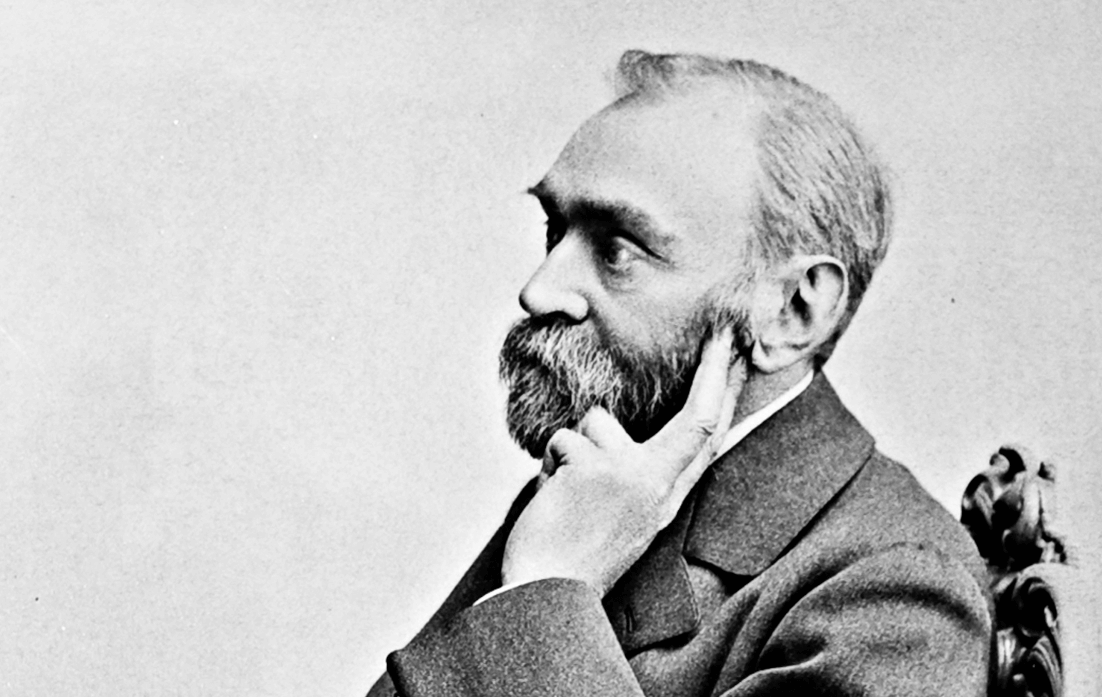Who was Alfred Nobel? What did Alfred Nobel Invent? Information on Alfred Nobel biography, life story, works and inventions.

Source: wikipedia.org
Alfred Nobel; (1833-1896), Swedish inventor of dynamite and other explosives and founder of the Nobel prizes. Nobel was born in Stockholm on Oct. 21, 1833. He attended first grade in Sweden in 1841, received instruction from private tutors in St. Petersburg, Russia, from 1842 to 1850, and then traveled abroad for two years, visiting France and the United States. On his return to St. Petersburg he worked in his father’s factory, where he assisted his father, Immanuel, from about 1852 to 1859, mainly in developing torpedoes and mines.
By 1859, Nobel had begun to experiment with nitroglycerin. He achieved his first explosion in 1862 and obtained a Swedish patent for a percussion detonator in 1863. About this time Nobel set up a small plant near Stockholm for the manufacture of nitroglycerin, but the plant blew up in 1864, killing his youngest brother, Emil. Following several other accidents involving that explosive, Nobel incorporated nitroglycerin in an inert absorbent substance, making the nitroglycerin comparatively safe to use. He named his new explosive “dynamite” and patented it in 1867. About 1875 he combined nitroglycerin and guncotton, obtaining a jellylike substance called blasting gelatin. This explosive, which was more powerful than dynamite, was patented in 1876. In 1888, Nobel developed ballistite, a smokeless powder produced from nitroglycerin. Nobel had many other inventions, and he took out patents on processes for making synthetic rubber and leather and artificial silk.
Nobel accumulated a vast fortune from the manufacture of dynamite and other explosives and from the production of oil at fields in Baku, Russia, which were developed and managed by his two older brothers, Robert and Ludvig. When Alfred Nobel died, in San Remo, Italy, on Dec. 10, 1896, he left the major portion of his fortune, about $8.5 million, for the establishment of annual awards to men and women who confer the greatest benefit on mankind in the fields of physics, chemistry, physiology or medicine, literature, and peace.